MQA Testimonials
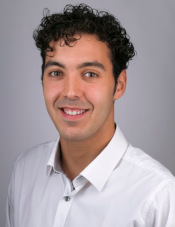
Erik Avilés Castilla (2017), Data Analyst at the Cabinet Office, UK Government in London
I strongly believe that enrolling in the AQM track was my best academic decision. I chose the course because I wanted to specialise in the statistical side of economics but shortly after joining I realised that AQM provides much more than just extraordinary analytical skills. It gives students the opportunity to expand their limits, challenge themselves and pursue knowledge. It can sound philosophical, but these elements have proved to be key attributes for a perfect candidate at my Master´s degree in Business Analytics at UCL, as well as during my professional experience as analyst at Orange or the Cabinet Office. Grades are important but in our real fast paced world, what matters the most is to have the ability to think outside the box, utilise information and data in different ways to tackle business problems with the right solutions. Subjects like Real Analysis or Econometrics have helped me in many ways succeed in my Master – mastering statistical terms, learning programming languages such as Python or R, being able to work under pressure or turn challenges into opportunities.
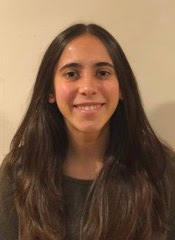
Laia Bosque Mercader (2017), PhD student at the University of York
Throughout the first years studying the Bachelor’s degree in Economics, I was taught fundamental tools to understand economic theory as well as its importance when applied to the real world. However, my eagerness to study thoroughly economics while challenging myself went beyond the standard courses. To do so, I took advantage of the modules offered by the MQA programme at UPF as an opportunity to learn new concepts, step out of my comfort zone, and sharpen my technical, theoretical and above all quantitative skills. Thanks to this exciting opportunity, I felt more prepared than ever to study a Master’s in Economics at BGSE and, later on, start a PhD in Economics at the University of York. I would definitely recommend this experience to all those students who want to give their best and make the most of the years at university.
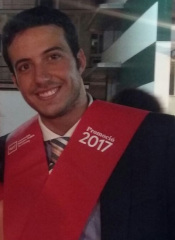
Pau Gimeno Perramon (2017), Operations & Risk Analyst at Sand Grove Capital Management LLP
Pursing the MQA track was one of the most enriching and rewarding experiences at UPF. As I was finishing my second year, I realised I wanted to focus my studies on the more quantitative, technical fields of economics, and the modules in the MQA programme were perfectly suited for my needs. It helped me build a more solid foundation in mathematics and statistics as well as develop and improve my coding skills. I really encourage anyone who shares the same ambition, the track will push your limits and provide the right tools, knowledge and practical approach so you are equipped to face many situations in this demanding and ever-changing world.
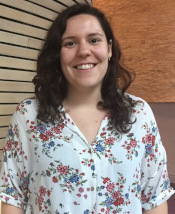
Laura Pérez Cervera (2017), PhD student at Queen Mary University of London
I initially chose the MQA courses because of my genuine interest in quantitative topics, as well as my eagerness to study more challenging courses at UPF. I chose the most academic-oriented ones, with a strong emphasis on the mathematical fundamentals, such as Real Analysis and Linear Algebra and Dynamic Systems. This choice turned out to be a great one, since the courses gave me a strong preparation to study the Master in Economics at BGSE. After that, I felt ready to start a new period in London, where I’m pursuing the PhD in Economics at Queen Mary University of London. While I didn’t know this would be my career path when I decided to take the MQA track, it definitely provided me a wider range of opportunities when I finished my undergrad!
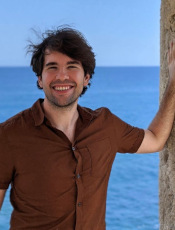
Gabriel Chaves Bosch (2017), PhD Student at Queen Mary University of London
During the early years of my undergraduate studies in International Business Economics, I realised I enjoyed the more academic part of the degree, specially related to economics. However, the training offered in standard economics courses in International Business Economics, while necessary, was not sufficient for me to acquire the skills needed to thrive in an Economics master's degree. In my particular case, I took courses on Linear Algebra and Dynamical Systems, Real Analysis, Modern Statistical Computing in R and Applied Econometrics. These courses were highly demanding with respect to other courses offered during the 3rd and 4th years and helped me immensely in the transition towards more rigorous training needed to get into a good economics PhD program. More specifically, the blend between mathematical theory and quantitative methods has proved very useful in successfully completing the Master of Economics at BGSE, a highly demanding program, and getting accepted into an Economics PhD at Queen Mary University in London.

Jordi Gutiérrez Curós (2016), Data analyst at the European Central Bank
Even after my Master’s and different working experiences, I keep mentioning the MQA courses and projects in my CV and cover letters. In my case, Forecasting techniques, Statistical computing with R and Applied econometrics showed me how to solve actual data problems and understand models that I had not seen before in the Economics program. In particular, at the ECB I have applied time series models with R because I had seen similar applications before in these courses. Many of the MQA programs are more project-oriented, and they give you the flexibility to choose your own topic to apply their methods to. Independently of whether you end up going to academia or industry, having data-focused projects in your fields of interest is an invaluable experience by the time you leave university.
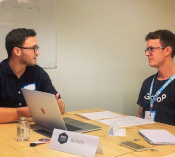
Marc Herrera Cuffí (2014), Business Intelligence analyst at Glovo
Thanks to my studies in the MQA track in UPF BSM I could get an overview of statistical methods and also learn some programming. It is very important to focus during your studies and try to go beyond the minimum. Doing the extra mile is really worth it. This gave me the chance to reorient my professional path more into a more quantitative and technical work. For the last two years I have been working in Glovo as a Business Intelligence analyst. Currently, I am also the Lead Teacher in Ironhack for the part time module of Data Analytics. I teach Python, statistics and machine learning.
